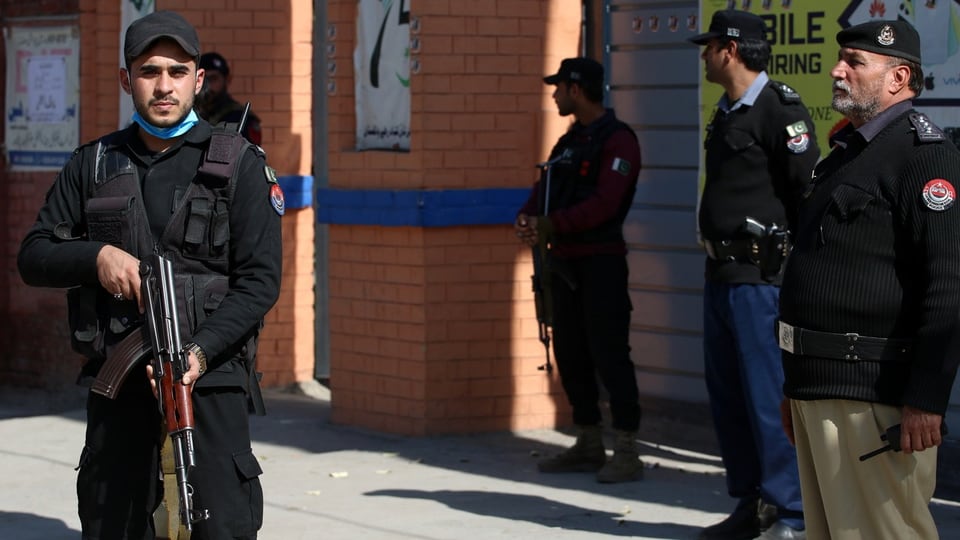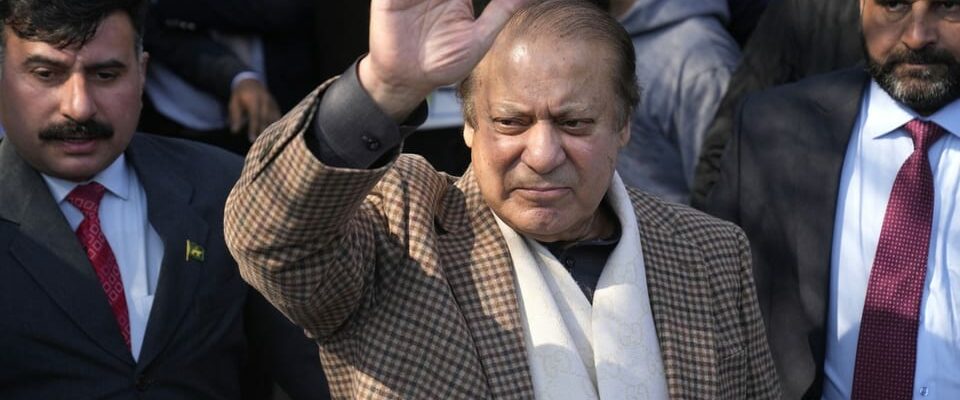- Pakistan elects a new parliament and prime minister.
- Even before the first results, the party of the top candidate Nawaz Sharif appeared confident of victory.
- The first meaningful results should be available on Friday.
Around 130 million eligible voters in Pakistan were called upon to vote on the distribution of power in the National Assembly and the provincial parliaments. Authorities have registered a high voter turnout. This is a clear sign of the people’s will to determine the country’s future, said caretaker Prime Minister Anwaar ul Haq Kakar.
For months, political experts and human rights activists in the country have denounced unfair electoral conditions as Pakistan’s judiciary has largely dismantled the opposition. Former Prime Minister Imran Khan is in prison on corruption charges, among other things. The 71-year-old politician sees himself as the victim of a political conspiracy and blames the powerful military for it. Khan’s so-called Justice Party Tehreek-e Insaf (PTI) denounced the massive restrictions on the internet on election day.
Favorite Nawaz Sharif returns from exile
Three-time former prime minister Sharif, who had recently returned from exile in London, was the favorite in the elections. He has promised to rebuild the country’s economy. Pakistan is struggling with high inflation, an unstable currency and low foreign reserves.
Legend:
Former Prime Minister Nawaz Sharif entered the race as the favorite and is also considered the influential military’s preferred candidate.
Keystone/AP Photo/KM Chaudary
The 35-year-old Oxford graduate and former Foreign Minister Bilawal Bhutto Zardari, who ran as the top candidate for the Pakistan People’s Party (PPP), was considered an outsider but Sharif’s most important opponent. The PPP and Sharif’s PML-N were most recently part of a broad government coalition that Khan toppled in April 2022.
Several deaths and limited cell phone network
Given the fragile security situation, the polling stations were protected by 600,000 police and soldiers. Despite high security precautions, the military recorded a total of 51 attacks, which occurred primarily in the provinces of Khyber-Pakhtunkhwa and Baluchistan. According to an army statement, twelve security forces were killed and dozens of people were injured. The armed forces said they killed five terrorists in various operations. The day before the election, at least 26 people were killed in two attacks on campaign offices in Baluchistan province.

Legend:
Pakistani security officers stand guard outside a polling station in Peshawar.
Keystone/EPA/ARSHAD ARBAB
The elections were also overshadowed by massive restrictions on mobile networks and mobile internet, as the organization NetBlocks reported. Pakistan’s Interior Ministry justified the bans with the alleged security for voters. In the evening, the ministry announced that it had gradually reactivated the services. Human rights organizations sharply criticized the restrictions.
